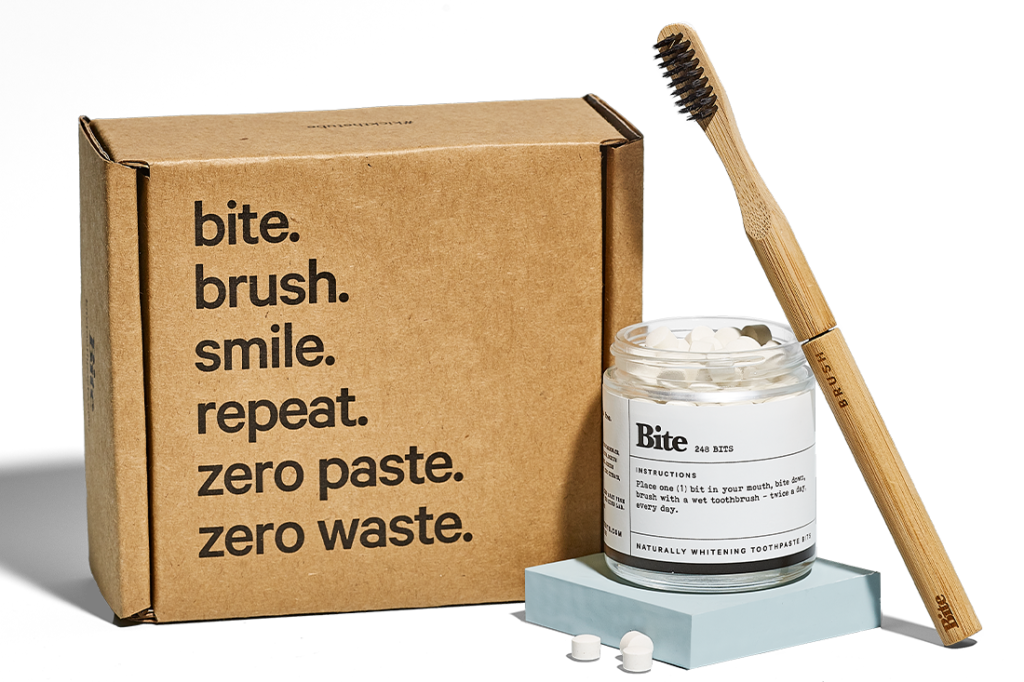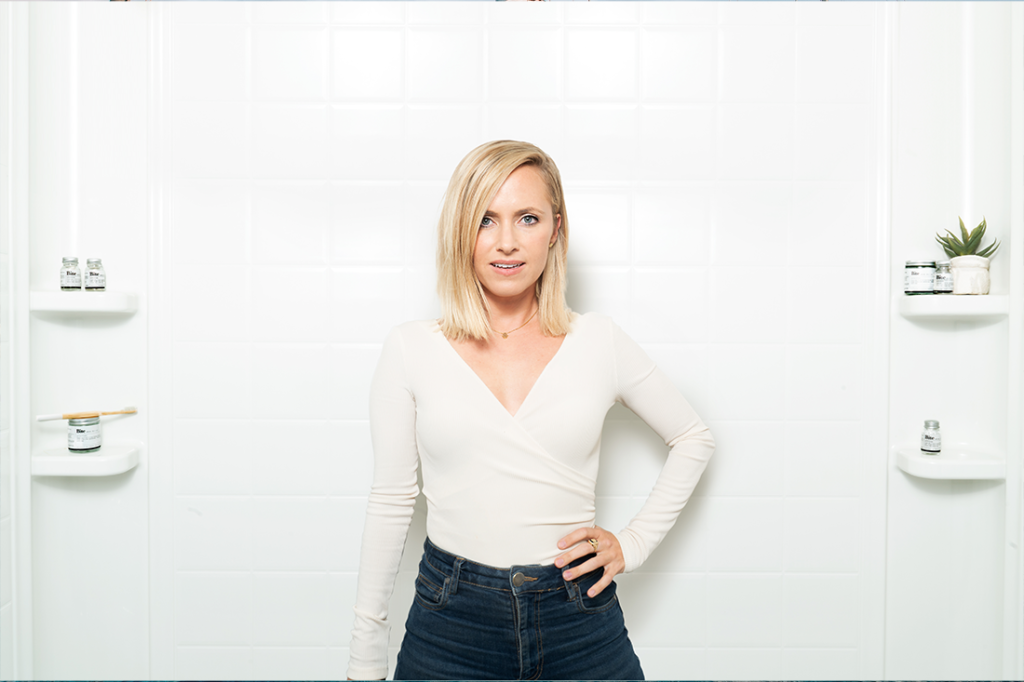Great entrepreneurs tend to have a handful of things in common, but this one trait is perhaps most unmistakable: They can each see a massive societal problem, one that would take a whole city or country or the entire world to fix, and think, I’m the one who should do something about this.
For Lindsay McCormick, founder and CEO of Bite, it was the not-so-small problem of plastic waste, specifically the colossal amount of empty toothpaste tubes we toss out each year. To address, she would need to take on the monumental task of changing the way people brush their teeth, something most of us have been doing a specific way for generations. Making the challenge all the more impressive, McCormick wasn’t a dentist or a chemist or a scientist of any kind. She was a 30-something TV producer living the dream in California.
And still she thought, I’m the one who should do something about this.
Sustainable Living
McCormick has always had a passion for sustainability and a love of the outdoors. While living in Los Angeles and looking for a job in TV, she taught surf lessons in the summer. Over time, the plastic in the ocean that would wash up on her board inspired her to go all-in on working in TV so she could make nature and conservation documentaries.
She eventually became a producer for House Hunters on HGTV. The job had her flying all over the country to film, but the lifestyle didn’t jibe with her waste-free passions. Although she was able to use refillable containers for most toiletry items like shampoo, conditioner and lotion, it was those pesky travel-sized toothpaste tubes that she couldn’t refill and would have to throw away. She tried every possible toothpaste alternative and never found anything she liked. Her research into the issue also turned up the estimate that over 1 billion plastic toothpaste tubes are discarded every year, or as McCormick likes to visualize it: the equivalent of 50 Empire State Buildings stacked on top of each other.
So like all great inventors, she decided to try and solve the problem herself. “I started making it in my living room,” McCormick says. “I hit up every friend from high school and college who became a dentist or dental hygienist and I was like, ‘What do you think of these ingredients and this formula?’ ”
She also took online chemistry classes and purchased a machine that allowed her to test out each new iteration in the form of a tablet. The result was a creation the size of a small breath mint that users place in their mouths and chomp down (hence the name Bite) and then brush with a wet toothbrush. The tablets foam up in your mouth, and your teeth still end up feeling just as fresh as with regular toothpaste. And best of all to McCormick, the chemicals used are environmentally friendly and never tested on animals.

Explosive Success
McCormick wasn’t trying to become a toothpaste tycoon, she just wanted to make a product that people like her would use. In fact, she kept her full-time job in the early days. In 2018, zero-waste bloggers began talking about Bite online, and the product gained momentum. Soon Women’s Health asked her to make a video about the product. Overnight her business exploded, and she and her boyfriend, co-founder Asher Hunt, quit their jobs to go all in on Bite.
“In the first year I made about $6,000. Within two weeks of the video going viral we made $200,000,” McCormick says. “It was like, we need to make this a real company!”
Now Bite is more than just a toothpaste company, offering an entire suite of oral care products, including mouthwash bits, floss, bamboo toothbrushes and whitening gel. The company also recently announced the addition of a deodorant. Big competitors have started to roll out similar products, which McCormick greets with an open mind. It might be challenging for her business, but it’s great for her zero-waste mission.
“I think that we are continuing to show them that this is a market that is viable, and this is something that is important to people,” McCormick says. “Everybody should be trying to fight the plastic pollution problem.”
This article originally appeared in the January/February 2022 Issue of SUCCESS magazine. Photos courtesy of Bite Toothpaste



